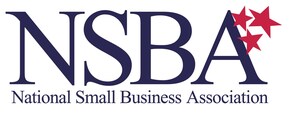NSBA Responds to State of the Union Address
WASHINGTON, Jan. 27 /PRNewswire-USNewswire/ -- During his first State of the Union Address, President Barack Obama outlined several key initiatives designed to bolster small business. Acknowledging the critical role small business plays in creating the majority of new jobs, Obama's address placed a heightened level of importance on America's small-business community.
"We were pleased to see small business in the limelight tonight," Todd McCracken NSBA president and CEO. "It remains to be seen, however, whether the administration actually will push Congress to enact legislation that is helpful to small businesses."
Small Business Taxes
Hiring Tax Credit
The idea to make hiring easier for small businesses is a good one. Unfortunately, when polling our members, few believe that a hiring tax credit -- which would likely be temporary -- would be incentive enough to take on new employees, particularly given costly benefits. In many cases people who take advantage of this tax credit would have hired the new employee regardless.
Another option that could also help small businesses across the board is a payroll tax holiday on all employees. Not only would this improve cash-flow, it would ease payroll costs for those businesses in the tough situation of considering lay-offs.
Capital Gains Tax
The proposed one-year elimination of the tax on capital gains, up from the current -- but temporary -- 75 percent exclusion would provide added incentive to invest in small businesses, however it only applies to a handful of small businesses.
Expensing
Both the proposed extension of the enhanced Section 179 expensing of up to $250,000 and the accelerated bonus depreciation will help small-business owners reinvest in their business and have more cash on-hand.
Estate Tax
Unfortunately, the President was silent on enacting reasonable estate tax reform. NSBA could support an estate tax exemption of at least $3.5 million per person (indexed for inflation) with a reduced top rate of 45 percent. Due to the House and Senate's failure to address this prior to the start of 2010, Congress is now considering a retroactive tax change which would be a huge problem for many small businesses.
Small-Business Access to Capital
According to NSBA's 2009 Year-End Economic Report, 78 percent of small businesses report that their company has been impacted by the credit crunch and more than one-third of small businesses -- which amounts to more than 10 million -- are not able to get adequate financing for their business.
Leverage TARP Funds for Small-Business Lending
NSBA has been calling for such a mechanism since April 2009. President Obama's proposal to divert $30 billion to community banks for such a lending program is a good start, but it must start now. Today's entrepreneurs are severely limited in their ability to finance new businesses through their historical avenues: leveraging the value of their home, borrowing from friends and family, or getting a traditional loan.
Extend Stimulus Bill Lending Provisions
Beyond Obama's proposal for TARP funds, NSBA has been calling for an extension through the end of 2010 of the SBA lending provisions enacted in the American Recovery and Reinvestment Act, specifically the increased guarantee on 7(a) loans and the elimination of up-front borrower fees. NSBA also has advocated for an increase in the loan caps for SBA lending programs.
Health and Benefits
Health Care Reform
NSBA, back in 2004, was the first national small business group to call for a broad reform of the health care system. NSBA is hopeful that President Obama's call to act on health care reform results in a more cost-conscious eye toward such reform. The cost of health care is becoming a greater burden on job growth and retention -- according to NSBA's recent report, in December 2009, 20 percent of small-business owners -- one in every five -- dealt with rising health insurance costs by reducing their workforce. That's up five-points from July 2009.
Mandated IRAs
Obama's proposal to require all employers who don't currently offer a retirement plan to establish IRAs for all employees and facilitate direct-deposits into those accounts could come at a cost to small business. The idea behind the proposal, enhancing savings of America's middle class, is a noble one. However, putting the responsibility on one of the most hard-pressed and financially strapped segments of today's economy -- small business -- is not only unfair, it could be very problematic for some small businesses and their employees.
There has not been enough consideration of how mandated IRAs would impact small businesses, particularly restaurants and retailers, that don't use a payroll company or participate in direct deposits. According to an informal poll of our members, less than half use a payroll company. Among those that do, the cost ranges between $300 and $1,000 per month.
Enhance Exporting
Improving and enhancing exporting opportunities for small businesses will strengthen not only the small-business community, but U.S. exports. As the U.S. economy faces a jobless recovery and consumer spending continues to lag, exporting may be one of the few areas where small businesses can grow right now. Given that large numbers of small businesses do not export, this holds great potential.
"The number of small businesses citing decreases in revenue over the past 12 months rose to its highest point since 1993," stated Keith Ashmus, NSBA chair and co-founding partner at Frantz Ward in Cleveland, Ohio. "The time for talk is long gone -- NSBA stands ready to work with the administration and Congress in implementing policies that truly help small businesses."
Since 1937, NSBA has advocated on behalf of America's entrepreneurs. A staunchly nonpartisan organization, NSBA reaches more than 150,000 small businesses nationwide with members as diverse as the economy they fuel. For more information, please visit www.nsba.biz.
SOURCE National Small Business Association
WANT YOUR COMPANY'S NEWS FEATURED ON PRNEWSWIRE.COM?
Newsrooms &
Influencers
Digital Media
Outlets
Journalists
Opted In





Share this article